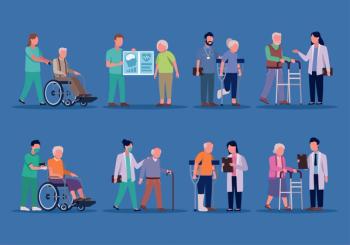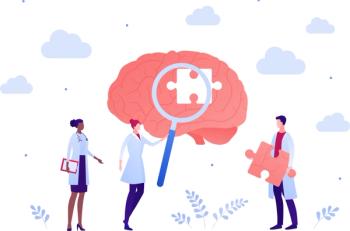
The psilocybin did well on safety and efficacy in this phase 2 trial of patients with PTSD.

The psilocybin did well on safety and efficacy in this phase 2 trial of patients with PTSD.

Pharmacogenomics at the 2024 APA Annual Meeting.

Sudhakar K. Shenoy, MD, discusses annual meeting, hot topics in child and adolescent psychiatry, and other issues in psychiatry.

Can you form a human bond virtually?

Biases can be apparent in case notes. Psychiatric Times Editor-in-Chief sat down with us at the 2024 APA Annual Meeting to share more.

TEV-‘749, an investigational once-monthly subcutaneous long-acting injection of the 2nd generation antipsychotic olanzapine, sees positive phase 3 results.

Here are highlights from the last day of this year’s APA Annual Meeting.

H. Steven Moffic, MD: winner of the Abraham Halpern Humanitarian Award at the 2024 APA Annual Meeting.

“Our results indicate that prior assessments significantly underestimated the association between ambient temperature and suicide.”

Peter J. Weiden, MD, sat down with Psychiatric Times’ Editor-in-Chief at the 2024 Annual Meeting. Here’s Part 2 of their conversation.

Peter J. Weiden, MD, sat down with Psychiatric Times’ Editor-in-Chief at the 2024 Annual Meeting. Here’s Part 1 of their conversation.

Here are highlights from the fourth day of this year’s APA Annual Meeting.

The Psychiatric Times Substance Use Section Editor reflects on the theme of the 2024 Annual Meeting, plus what he is most excited about in psychiatry.

Philip R. Muskin, MD, MA, DLFAPA, LFACLP, discusses contemporary psychiatry and some of the most exciting things about the 2024 Annual Meeting.

You no longer have to trade physical health for mental health.

The series editor of Tales From the Clinic stresses the importance of clinical case studies.

Rikinkumar Patel, MD, MPH, shares some recent research findings with Psychiatric Times at the 2024 Annual Meeting.

Do you use art as part of your clinical practice?

Laura T. Safar, MD, led a discussion on the prevalence and prevention of violence in the workplace.

Generalized anxiety disorder: has it been sidelined by MDD? MM-120 is a new treatment under investigation for this disorder, making waves.

Psychiatrists, by maintaining active social media pages, can promote positivity and establish themselves.

Here are highlights from the third day of this year’s APA Annual Meeting.

Advocating for the human rights of your older patients is an important part of clinical geriatric psychiatry. Learn more in this APA Annual Meeting session!

The extension trial aims to address the cognitive impairment often observed in schizophrenia.

This 2024 APA Annual Meeting poster documented the abuse potential of benzodiazepines and tapering challenges.

Sports and performance psychiatry: an increasingly recognized subspecialty.

Jonathan M. Meyer, MD, sat down with Psychiatric Times' Editor-in-Chief at the 2024 APA Annual Meeting.

Some clinicians are afraid to ask about gender and sexuality. Here's how this affects patient outcomes.

For the past 7 decades, there has only been 1 mechanism of action for schizophrenia treatment. Christoph Correll, MD, talks new options and cognitive impairment at the 2024 APA Annual Meeting.

Here are highlights from the second day of this year’s APA Annual Meeting.